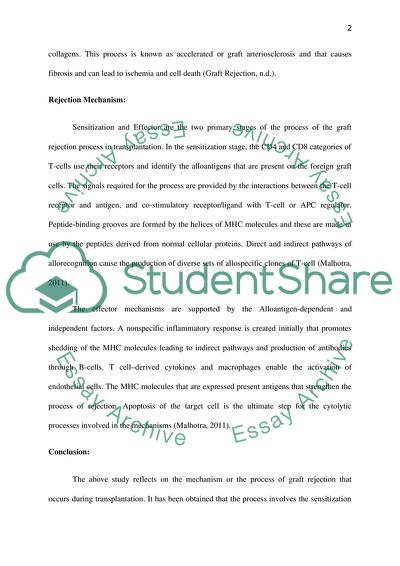Describe the process of graft rejection in transplantation Essay. Retrieved from https://studentshare.org/biology/1596063-describe-the-process-of-graft-rejection-in-transplantation
Describe the Process of Graft Rejection in Transplantation Essay. https://studentshare.org/biology/1596063-describe-the-process-of-graft-rejection-in-transplantation.


